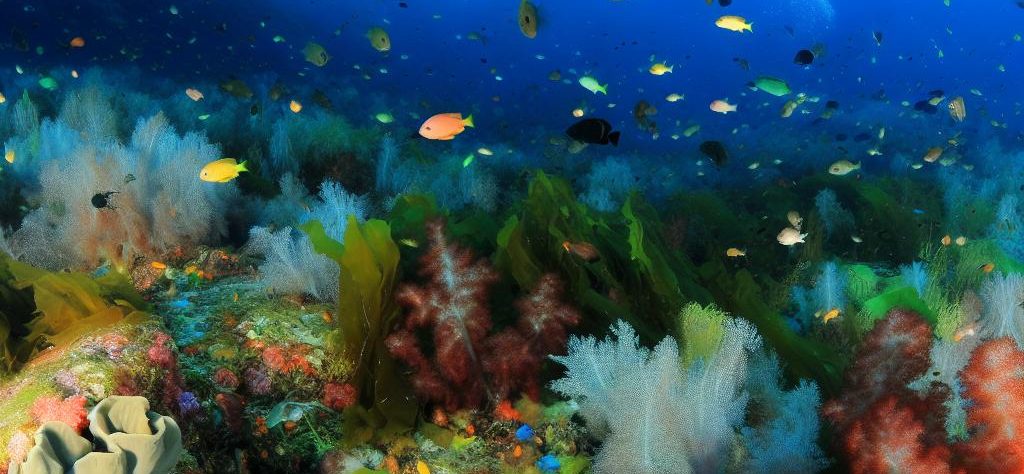Introduction to Coastal Reefs in Zambales
Zambales, a province situated in the Central Luzon region of the Philippines, is globally acclaimed for its remarkable marine biodiversity and captivating coastal reefs. These reefs are not merely natural marvels; they are indispensable components of the local ecosystem. They provide crucial habitat for a multitude of marine species and serve as a natural fortification against coastal erosion, playing a vital role in the ecological and economic landscape of the region.
Significance of Zambales Reefs
The reefs around this region are significant for multiple reasons. Their role transcends beyond just environmental contributions; they are essential lifelines supporting the socio-economic structure of Zambales.
Ecological Functions
The ecological role of coastal reefs in Zambales is profound. These marine structures support ecological equilibrium by harboring a diverse array of marine organisms. Reefs act as homes to various species, including corals, fish, and invertebrates. The importance of coral reefs, in particular, lies in their capacity to offer shelter and nutrients to marine life. Furthermore, they contribute to maintaining water quality by filtering out pollutants, thus ensuring a healthy aquatic environment.
The diversity found within these reefs is crucial for ecological studies and is an example of marine resilience and adaptation. They facilitate complex symbiotic relationships that are necessary for the thriving populations of both flora and fauna. Additionally, they act as breeding and nursery grounds for many fish species, some of which are integral to the fishing industries, highlighting their importance in maintaining fish populations and supporting food security.
Economic Impact
Beyond ecological contributions, the reefs of Zambales have a substantial economic influence. The local economy leans heavily on the activities centered around fishing and tourism. Healthy and vibrant reefs ensure sustainable fishing, bolstering food supply and livelihoods for numerous local fishermen. Moreover, these reefs are a magnet for tourists and divers, drawn by the opportunity to witness the underwater beauty and biodiversity that these reefs offer. This influx of tourists enhances local business opportunities and provides jobs, vitalizing the region’s economy.
For researchers and educators, these reefs offer an invaluable living laboratory. Scientific research conducted in these areas not only contributes to global understanding but also brings attention and resources to the province. This focus helps to drive conservation efforts and promotes sustainable practices.
Threats to the Reefs
However, despite their significance, Zambales’s coastal reefs are vulnerable to numerous threats. The key challenges include environmental degradation prompted by pollution and unsustainable practices. The effects of climate change, such as rising sea temperatures and ocean acidification, pose severe threats by inducing coral bleaching, a process that leads to the weakening and potential death of coral structures.
Human activities, including destructive fishing methods, coastal development, and pollution, continue to be primary threats. Such practices cause physical damage to reef structures and degrade water quality, posing a significant risk to these ecosystems. The loss of reefs would not only disrupt marine biodiversity but also weaken natural coastal defence systems, potentially leading to more significant erosion and loss of land.
Conservation Efforts
In response to these threats, several conservation initiatives have been undertaken to safeguard these precious ecosystems. The local government’s engagement, along with non-governmental organizations and community groups, is pivotal in protecting and restoring these marine areas. Initiatives such as coral transplantation seek to restore damaged reefs by transplanting corals to areas where they can thrive. Additionally, the establishment of marine protected areas helps to manage human activities, reducing adverse impacts on critical habitats.
Educational programs play a crucial role in raising awareness and fostering a culture of conservation among locals and visitors alike. By informing and engaging the community, these programs enhance public support for policies aimed at protecting the reefs. Research partnerships and increased monitoring efforts are essential elements of effective conservation strategies, providing data crucial for adaptive management.
Get Involved
Individuals have a pivotal role to play in the protection of Zambales’s coastal reefs. Supporting and advocating for sustainable tourism practices helps minimize environmental footprints. Participation in local conservation activities, whether through volunteering or attending events, contributes significantly to ongoing efforts. Those interested can also donate to organizations focused on marine conservation, providing resources needed for more extensive and impactful projects.
For diving enthusiasts, practicing responsible diving is imperative to avoid harming the delicate reef ecosystems. This involves being mindful of one’s surroundings, not touching or disrupting marine life, and following guidelines provided by local authorities.
To further engage with conservation efforts or to learn more, interested individuals can explore local conservation websites or reach out to relevant environmental organizations. These platforms offer resources, updates, and opportunities to contribute to the preservation of these vital ecosystems. Engaging with these bodies empowers individuals and communities to stand as stewards of one of the planet’s most remarkable natural treasures.

